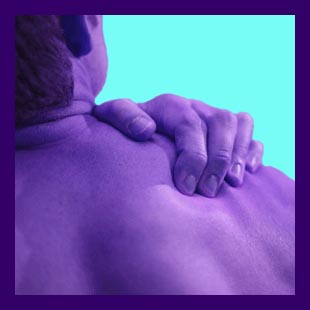
Chiropractic for pinched nerves seeks to relieve nerve compression using manual spinal adjustments and other techniques. Pinched nerves are one of the many back and neck pain diagnoses treated with holistic spinal adjustments. In fact, compressive neuropathies rank among the most commonly treated diagnoses in the chiropractic sector of complementary medicine.
Pinched nerves can be caused by several distinct conditions, including herniated discs in the spine, abnormal spinal curvature, spinal arthritis, spondylolisthesis and non-spinal muscular conditions, such as thoracic outlet syndrome and piriformis syndrome.
Chiropractic is the third largest sector in the healthcare industry. More chiropractors are in practice now than ever before and more patients benefit from chiropractic manipulation. However, while chiropractic can impart many benefits to patients, there are some distinct limitations to the efficacy of treatment, especially for certain types of compressive neuropathy conditions.
This editorial examines the chiropractic diagnosis and treatment of pinched nerves in the spine.
Chiropractic for Pinched Nerves Diagnosis
In chiropractic care, pinched nerves will often be diagnosed simply on the basis of clinical expression, such as radiating pain, tingling, numbness or weakness in an appendage. However, this assumptive occurrence also takes place in the traditional medical sector, as well.
When the symptoms are experienced in the leg or foot, the lower spinal region is usually blamed. When the symptoms reside in the shoulder, arm, hand or finger, the cervical spinal region is typically implicated.
Chiropractors will usually concentrate on examining the areas deemed to be involved in the nerve pain condition. It is not uncommon for them to discover one or more vertebral subluxations that are implicated as the causation of the suspected pinched nerve.
In reality, pinched nerves can not be accurately diagnosed using a physical exam or x-ray imaging. If you were diagnosed through either of these processes, then your confidence in the conclusion should never be 100%. Spinal MRI may show some evidence of nerve compression, but often only visualizes neuroforaminal encroachment or central canal stenosis which may be coincidental to any symptoms suffered.
The best way to truly diagnose a compressive neuropathy is with specialized testing, such as nerve conduction studies. These diagnostic methods are typically only available from qualified neurologists and some chiropractic physicians.
Chiropractic Pinched Nerve Treatment
Chiropractic for pinched nerves is basically identical to any other diagnosis that is deemed appropriate for treatment. Spinal adjustments are the main therapy modality utilized, possibly reinforced with TENS use, massage or special exercises as secondary methods of care.
Most of the time, these modalities will not resolve a structurally-motivated neurological pain complaint permanently, regardless of whether the diagnosis is correct or not. This is because chiropractic only has limited efficacy for treating many of the actual causations of compressive neuropathies.
Most pinched nerves are not due to vertebral subluxations and most subluxations do not cause pinched nerves. Therefore, chiropractic is not an ideal treatment for verified nerve impingement issues in most instances.
When a nerve is actually impinged upon by spinal stenosis or foraminal stenosis that is enacted by arthritic changes, chiropractic is unlikely to provide much, if any benefit. When a pinched nerve is sourced by vertebral slippage, such as retrolisthesis or anterolisthesis, chiropractic is unlikely to provide a lasting cure. When a compressed nerve is generated by unusual spinal curvature concerns, such as scoliosis, hyperlordosis, hypolordosis, hyperkyphosis or hypokyphosis, chiropractic might not have any reward whatsoever.
However, in some instances where intervertebral discs place pressure on a neurological tissue, chiropractic for pinched nerves may be able to temporarily, or even permanently, relieve the symptoms through continued adjustments. However, this is not a given and many disc-enacted neuropathy patients do not benefit from spinal adjustments.
In some scenarios, vertebral subluxation may truly be responsible for impinging on a nerve and a well-placed adjustment could theoretically completely cure the pain. There are many reports of this type of efficacy in chiropractic literature.
Chiropractic for Pinched Nerves Experiences
It is crucial to remember that an actual chronic pinched nerve should not be painful. Continued nerve compression is proven to enact objective numbness and weakness, but not enduring pain. If long-term pain has been the main symptomatic issue and you have been diagnosed with a pinched nerve, then there is certainly logic in doubting the completeness and correctness of the conclusion, since the expression defies the clinical expectation.
Many times, the nerve that is speculated to be compressed is merely oxygen deprived. This is one of the most common causes of back and neck pain and is diagnosed as ischemia by medical professionals. In my experience, a great number of chronic idiopathic pain complaints are due to oxygen deprivation, regardless of where they occur in the anatomy. In the case of diagnosed pinched nerves, the variable symptomology of ischemia makes far more sense compared to the static numbness and weakness of a true compressed nerve. For patients with chronic pain and tingling, or intermittent, variable or often changing symptoms, ischemia might be the real underlying issue, not coincidental vertebral subluxations.
I also know a lot about chiropractic, having been treated by dozens of the world’s best for 2 decades. I have seen countless times the humorously famous demonstration of that plastic spine model being violently twisted to show how little nerves can get compressed when vertebrae are out of alignment.
I admittedly found relief in some instances of chiropractic manipulation and symptomatic exacerbation in others. However, not a single one of my supposedly pinched nerves were ever proven by clinical methods and most were eliminated as being the potential cause of my pain through specialized nerve testing techniques. When I brought this evidence to chiropractors, the resulting conversation has never been pleasant.
Chiropractic is a great healthcare modality. It is well suited to treat a variety of conditions, as well as to prevent problems in the spine and promote general health. However, chiropractic is not a cure-all and experience has shown us that many pinched nerve diagnoses are based on speculation, rather than any form of documentable evidence.





